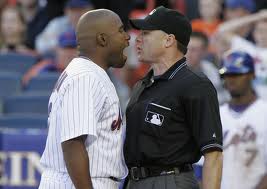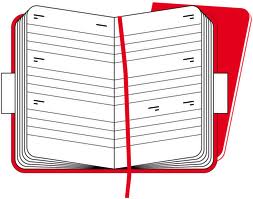The referee is in charge!
A good tournament referee slips into the background. You know he’s doing a good job when his matches are all perfectly programmed, no-one is complaining, and his tournament draws are full year after year.
I’ve been to hundreds of tournaments and that referee who is so melting away has a huge influence on proceedings.

Stand-off
The problem starts, in our level of tennis, with availability. Players play in their free time. People work and have family commitments. In the period of a tournament players are ready to adapt and make sacrifices, but still almost impossible to be completely available.
So, very conveniently, tournament referees ask you to indicate any times when you can’t play. Let’s say there are three evenings a week where you know you may not get away from work at a certain time. It’s stupid to even think of playing a tournament when your time is uncertain. You can take a chance and say, I MIGHT be free. So, on a day of uncertainty, you build stress into your tennis match. You may risk being late. You will almost certainly be stressed anyway through the fact that the day isn’t 100% programmable.
How many referees understand this? Not many. And it’s not because they don’t have jobs themselves. It’s because their mindset fixes them on their schedule, on making their lives as easy as possible.

A referee's stance
The result is that I think a typical referee sees an inscription coming in, and first of all, celebrates. He’ll be making a mental note of when this player will play, where he fits into the scheme of things. Quite right, he doesn’t want to disappoint anyone. He wants to appear organized and enthusiastic.
But he has omitted to look at one thing – the availability that the player has sent in. Having expressly demanded it, he then ignores it. It is astonishing the number of tournaments that I, or my players, have entered, where the matches have been clearly programmed at times that I have expressly made myself unavailable for.
Where has this gone wrong? The referee has a very tight schedule to get on paper, and the slightest glitch must be bulldozed through. If he were to check on availability, for every player, he’d be fiddling around for hours, and may end up manipulating the draw, putting players in the draw, instead of doing it by “drawing out of the hat”.
So the referee rings up the player and says, your first match is on Tuesday evening at 18 h 00. You tell him that this is not a time that you can guarantee, could you maybe put this match on the Wednesday when you know you are free. The referee, irritated, considers for a moment the repercussions of changing a match, making another five or six phone calls because changing one match means changing others.
A situation of conflict is created. And this happens time and again. And I must confess, I’m not a close friend of tournament referees. I have an uneasy Relationship with them, and them with me.
I might then ask the question, why didn’t you respect the availability I gave you? His answer, oh, if I respected the availability of everyone I’d never get the job done. So we’re back to square one. Why did I give him my availability in the first place?

Protocol
So, me, as a player, as a coach who has to schedule players at tournaments, what should the referee do? He should refuse any inscriptions where the availability will become too problematic for him. I’m ready for this. I want it. I want no arguments.
Let’ s not blame anyone.
The problem is the fact that tennis, at our level, is a part-time activity. It is sometimes regular, sometimes not. And the most stressful thing a hobby tennis player will do will be to play a tennis tournament. The tennis matches are stressful enough, without the referee creating stress off the court.
Have A Great Story About This Topic?
Do you have a great story about this? Share it!
